Top Food Sources of Calcium for Your Bones
By Dr. Malavika Athavale +2 more

Get,

to manage your symptom
Get your,


4 Cr+ families
benefitted

OTP sent to 9988776655



You’ve successfully subscribed to receive
doctor-approved tips on
Whatsapp

Get ready to feel your best.

Hi There,
Download the PharmEasy App now!!


Register to Avail the Offer
Send OTPBy continuing, you agree with our Privacy Policy and Terms and Conditions

Hi There,
Sign up on PharmEasy now!!
Trusted by 4 crore+ families

OTP sent to 9988776655



You have unlocked 25% off on medicines




Code: NU25
By Dr. Malavika Athavale +2 more
Table of Contents
Calcium is an essential mineral that builds our bones. Almost every cell in the body uses calcium in some way or the other, including muscles and the entire system. The body uses calcium to make the bones and teeth healthier and give them the strength to perform their activities smoothly.
Bone is a rigid organ that protects internal organs, produces red and white blood cells, stores minerals, and provides support for the body. It is full of calcium that makes our bones strong and flexible. As we age, the calcium level from our body reduces, and our bones get weaker. It is not only applicable to older people but also for everyone at all phases of their life. That is the reason why your doctor always recommends adding calcium-rich foods in your diet.
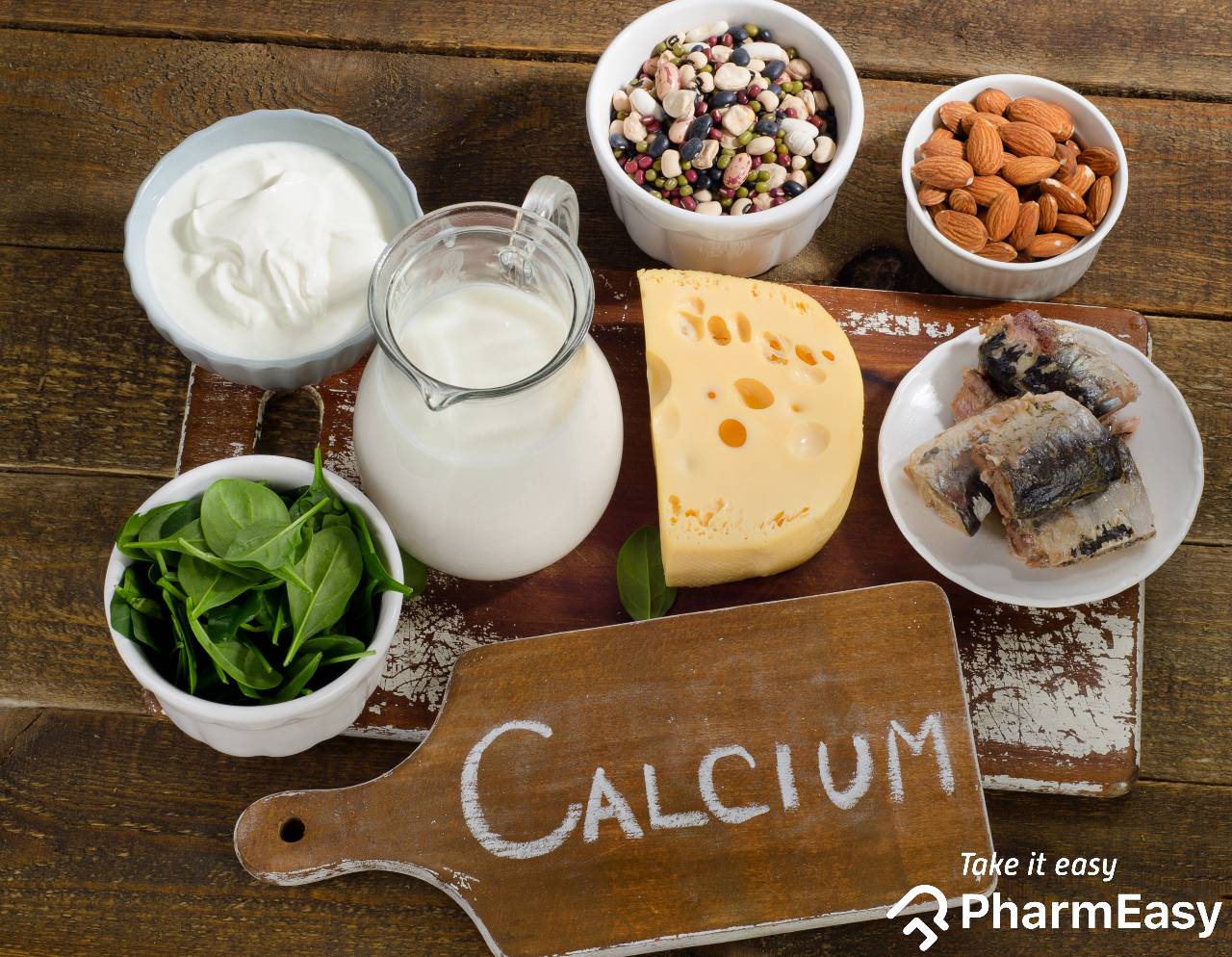
Your body is better able to absorb calcium from food than it can from supplements. It’s necessary to include calcium-rich foods in your diet, limit those that deplete calcium, and get enough magnesium and vitamins D and K to help in calcium absorption1.
The recommended daily intake of calcium4:
We may assume that milk is the best source of calcium, but you may be surprised to know that there are different foods that can help fulfil your calcium requirements. Here are some calcium-rich foods that you can add to your diet:
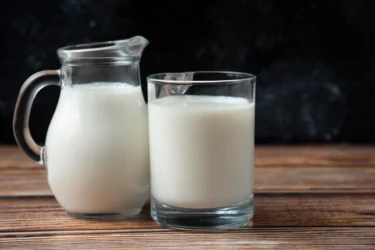
Milk is one of the best sources of calcium we all know. Milk is easily absorbed and digested by the body and is readily available every time. Milk consists of 100 mg to 180 mg of calcium for a 100 g serving. Additionally, milk is a good source of proteins, vitamin A, and vitamin D5.
When it comes to calcium absorption, not all foods are created equal. Dairy products and fortified foods have a higher absorption rate of about 30%, while certain compounds in plants can decrease absorption by forming indigestible salts with calcium. For instance, spinach has a much lower absorption rate of 5%, compared to milk at 27%11.
Dr. Rajeev Singh, BAMS
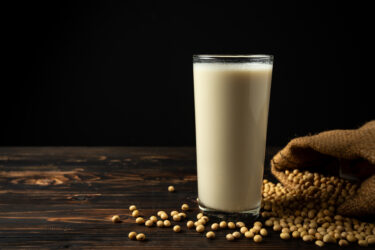
Soy milk is an alternative for lactose-intolerant people. Fortified soymilk is an excellent source of calcium, vitamin D, and proteins. On average, cup soymilk enhanced with calcium contains 80 to 500 mg3.
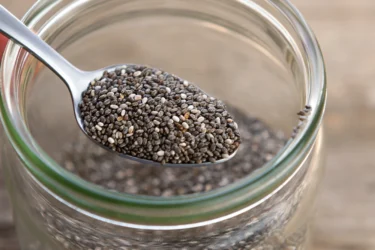
These tiny, nutritional powerhouses are rich in calcium, and include chia seeds, poppy seeds, and celery which contribute to 250 to 600 mg of calcium for a 100 g serving. It also contains essential fatty acids and proteins that can benefit your bone health. Chia seeds contain-Boron that promotes the growth of bones and helps the body metabolise calcium, phosphorus , and magnesium1,5.

All dairy products like yogurt are a rich source of calcium. Particularly low-fat yogurt is a good source of fibre, and a cup of low-fat yogurt contains 300 grams of calcium3.
Did you know that the calcium content of food can be influenced by its fat content? It’s fascinating how foods with higher fat levels tend to have slightly lower amounts of calcium. By opting for lower-fat options, you can not only make healthier choices but also ensure you’re getting the most out of your calcium intake11.
Dr. Smita Barode, B.A.M.S, M.S.

Another addition to the foods which are rich in calcium is cheese, it is a good source of calcium and proteins. Your body absorbs calcium from dairy products faster than plant sources, so try to add more dairy products in your diet. Cheese can provide 1g of calcium for a 100g serving,5.
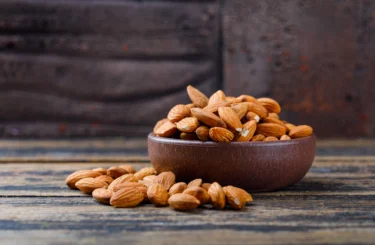
Almonds are a rich source of calcium, fatty acids, vitamin E, antioxidants, and proteins. They help to strengthen your bones, keep your heart healthy, and improve memory power. 15 almonds contain about 40mg of calcium6. However, a handful of almonds would contribute to a high amount of fats and calories, so you should limit their intake to smaller portions and seek a doctor’s advice on its benefit to your diet7.
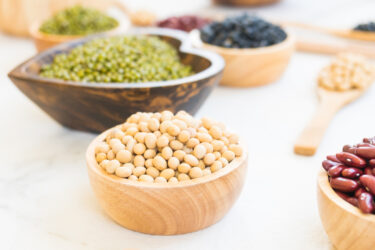
We all know beans and lentils are high in fibres, proteins, and other nutrients, but some are rich in calcium too. Beans and lentils like soybeans, green beans, red millets, and peas contain enough calcium that may help you not worry about the calcium requirements4.

Canned fishes like canned salmon and sardines can be a good option of calcium if you are non-vegetarian. Its bones, where most of the calcium resides. Their bones are edible and soft. You can mash and serve them, so they’re undetectable in many dishes. Create a spread to serve on toast or make fish cakes. And if you like whole sardines or chunks of salmon, add them to salads. But any canned fish does contain preservatives, so do check with your healthcare practitioner if you suffer from any clinical ailments like hypertension4.
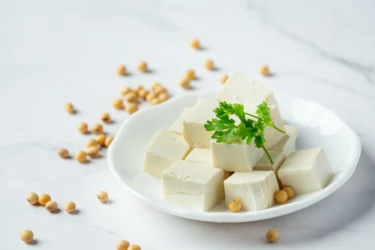
If you are vegan and diet conscious, then tofu would be a smart choice to get your calcium requirements. Tofu is naturally gluten-free and contains no cholesterol. Raw, firm tofu contains around 832 mg of calcium per cup6. It’s also an excellent source of protein and you can add it to scrambles, stir-fry, salads, and more.

Raw and dried figs are full of fibres, antioxidants, proteins, with a lot of calcium. This sweet-dessert like fruit contains 65 mg of calcium for 2 dried figs8. They can be eaten as a snack or as a part of your salads.
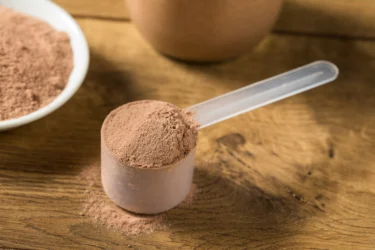
Whey is a type of protein found in milk that has been well studied for its potential health benefits. It is also an excellent protein source and full of rapidly digested amino acids, which help promote muscle growth and recovery. Whey is also high in calcium. Some studies9 have also shown that whey-rich diets to increase weight loss and improve blood sugar management.

Leafy green vegetables are incredibly healthy and many of them are high in calcium, including collard greens, spinach and kale. Leafy vegetables like spinach are high in oxalates, which are naturally occurring compounds that bind to calcium and impair its absorption6.

Rhubarb is rich in calcium, fibre, vitamin K and smaller amounts of other vitamins and minerals. It also contains prebiotic fibre, a type of fibre that can promote the growth of healthy bacteria in your gut10.
Did you know that calcium plays a vital role in our growth and development? When we’re born, our bodies already have a small but significant amount of calcium, ranging from 26 to 30 grams. As we grow, this calcium level increases rapidly, reaching approximately 1,200 grams in women and 1,400 grams in men by adulthood11.
Dr. Siddharth Gupta, B.A.M.S, M.D (Ayu)
Calcium is an essential mineral that should be obtained through your diet. If you have low calcium, it may lead to muscle atrophy (stiffness and rigidity), dysfunction of nerves, and reduced appetite. Likewise, excess calcium can also pose a threat to the body. Hence, the key is to consume a balanced amount of calcium as your body requires with prior consultation from a healthcare provider to help you attain the maximum benefit of calcium supplementation through your diet.
Also Read: Vitamin D for Women – Daily Need, Normal Range, Deficiency & Solution
1. Office of Dietary Supplements – Calcium [Internet]. Nih.gov. 2025 [cited 2025 Apr 24]. Available from: https://ods.od.nih.gov/factsheets/Calcium-HealthProfessional/?uid=febe3c7da5421s16
2. NHS. Food for healthy bones [Internet]. nhs.uk. 2022 [cited 2025 Apr 24]. Available from: https://www.nhs.uk/live-well/bone-health/food-for-strong-bones/
3. General (US) O of the S. Table 7-2, Selected Food Sources of Calcium [Internet]. www.ncbi.nlm.nih.gov. 2004 [cited 2025 Apr 24]. Available from: https://www.ncbi.nlm.nih.gov/books/NBK45523/table/ch7.t2/
4. Harvard T.H. Chan School of Public Health. Calcium [Internet]. The Nutrition Source. 2020 [cited 2025 Apr 24]. Available from: https://nutritionsource.hsph.harvard.edu/calcium/
5. Cormick G, Belizán JM. Calcium Intake and Health. Nutrients [Internet]. 2019 [cited 2025 Apr 24];11(7):1606. Available from: https://pmc.ncbi.nlm.nih.gov/articles/PMC6683260/
6. Better Health Channel. Calcium [Internet]. Better Health Channel. Better Health Channel; 2021 [cited 2025 Apr 24]. Available from: https://www.betterhealth.vic.gov.au/health/HealthyLiving/calcium
7. Almonds [Internet]. The Nutrition Source. 2018 [cited 2025 Apr 24]. Available from: https://nutritionsource.hsph.harvard.edu/food-features/almonds/
8. Know Your Bones [Internet]. Bone Health New Zealand. 2025 [cited 2025 Apr 24]. Available from: https://bones.org.nz/media/anhhkuqk/onz00065-bone-health-factsheet-calcium-9-0.pdf
9. Almario RU, Buchan WM, Rocke DM, Karakas SE. Glucose-lowering effect of whey protein depends upon clinical characteristics of patients with type 2 diabetes. BMJ Open Diabetes Research & Care [Internet]. 2017 Jul [cited 2025 Apr 24];5(1):e000420. Available from: https://pmc.ncbi.nlm.nih.gov/articles/PMC5530249/
10. Shkembi B, Huppertz T. Calcium Absorption from Food Products: Food Matrix Effects. Nutrients [Internet]. 2021 Dec 30 [cited 2025 Apr 24];14(1):180. Available from: https://www.ncbi.nlm.nih.gov/pmc/articles/PMC8746734/
11. Office of Dietary Supplements. Calcium. Office of Dietary Supplements – National Institutes of Health. [cited 2025 May 12]. Available from: https://ods.od.nih.gov/factsheets/Calcium-HealthProfessional/
Disclaimer: The information provided here is for educational/awareness purposes only and is not intended to be a substitute for medical treatment by a healthcare professional and should not be relied upon to diagnose or treat any medical condition. The reader should consult a registered medical practitioner to determine the appropriateness of the information and before consuming any medication. PharmEasy does not provide any guarantee or warranty (express or implied) regarding the accuracy, adequacy, completeness, legality, reliability or usefulness of the information; and disclaims any liability arising thereof.
Comments

Leave your comment...
You may also like
Comments